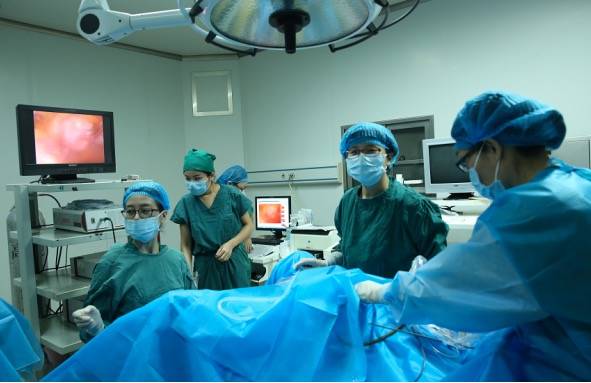Are partially blocked fallopian tubes normal?
The fallopian tubes play a crucial role in the female reproductive system. They are the passage through which the egg travels from the ovaries to the uterus and are also where sperm and egg meet. Ideally, the fallopian tubes should be completely unobstructed to support the normal process of conception. However, some women may encounter the situation of “patent but blocked” fallopian tubes, which raises the question of whether this condition is normal and merits further discussion.
1. Definition of partially blocked fallopian tubes
“Patent but blocked” refers to a partial obstruction in the fallopian tubes. Although a contrast agent can pass through the tubes, there may be narrowing or partial blockage in the lumen, making it difficult for the egg and sperm to pass through. This condition may affect conception, but partially blocked fallopian tubes may still allow fertilization to occur in certain cases.
2. Causes of partial obstruction of the fallopian tubes
The causes of partially blocked fallopian tubes are diverse:
1. Inflammation and infection: Conditions like pelvic inflammatory disease (PID) may lead to inflammation of the fallopian tube lining, causing narrowing or adhesions.
2. Endometriosis: This condition can cause abnormal growth of tissue around the fallopian tubes, leading to obstruction.
3. Surgery or injury: Previous abdominal surgeries or injuries may result in adhesions or narrowing of the fallopian tubes.
4. Congenital abnormalities: Some women may be born with structural issues in their fallopian tubes.
3. Diagnosis and assessment
Partially blocked fallopian tubes are typically discovered through hysterosalpingography (HSG) or ultrasound examinations. Doctors assess the degree of blockage based on the examination results and consider further tests, such as laparoscopy, to confirm the nature and location of the blockage.
4. Treatment options
Treatment for partially blocked fallopian tubes depends on the specific situation:
5. Medication: For blockages caused by infections, antibiotics may help treat the underlying infection, thereby improving fallopian tube function.
6. Surgical treatment: Laparoscopic surgery may be used to remove adhesions or repair the fallopian tubes to restore their patency.
7. Assisted reproductive technologies: If repairing the fallopian tubes is unsuccessful, in-vitro fertilization (IVF) may be considered as an alternative.
5. Lifestyle and prevention
Maintaining a healthy lifestyle and having regular check-ups can help prevent fallopian tube problems. Avoiding high-risk infections and undergoing regular gynecological examinations, especially when symptoms are present, can enable early detection and treatment of issues.
Jinan Honghui Hospital is located near the beautiful Hero Mountain at the north side of Chixia Square, featuring a combination of traditional Chinese and Western medicine. The hospital has an elegant environment, reasonable layout, full range of specialties, advanced equipment, and strong technical capabilities, making it a high-tech modern comprehensive hospital that integrates medical care, research, prevention, rescue, and education.
Jinan Honghui Hospital adheres to the service philosophy of “serving the people and benefiting society,” embodying the international Red Cross spirit of “humanitarianism, charity, and dedication,” with the concept of “first-class technology, first-class service, first-class environment, first-class image, and first-class management.”
Jinan Honghui Hospital, characterized by the combination of traditional Chinese and Western medicine, features an elegant environment, reasonable layout, a full range of specialties, advanced equipment, and strong technical capabilities, making it a high-tech modern comprehensive hospital that integrates medical care, research, prevention, rescue, and education.
Jinan Honghui Hospital is committed to wholeheartedly serving patients, operating without a profit motive, and actively engaging in charitable activities to assist the needy amid low-profit operations, providing excellent techniques and first-class service to bring hope to the patients around.
Partially blocked fallopian tubes are not entirely normal, but in some cases, they do not necessarily indicate infertility. Accurate diagnosis and timely treatment can effectively improve fallopian tube function and restore fertility. If partial blockage of the fallopian tubes affects conception, various treatment options, including medication, surgery, and assisted reproductive technologies, may be considered to help women achieve their reproductive goals.


